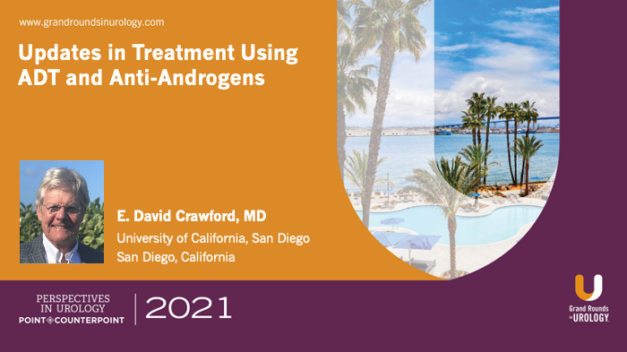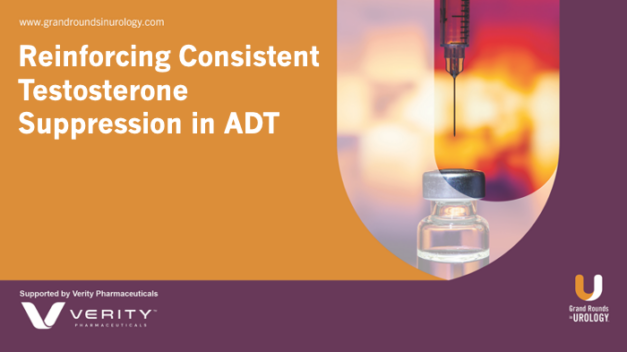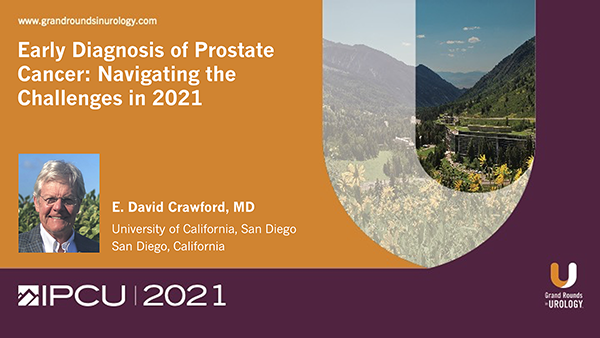Updates in Treatment Using ADT and Anti-Androgens
E. David Crawford, MD, Editor-in-Chief of Grand Rounds in Urology and Professor of Urology at the University of California, San Diego, discusses the state of androgen deprivation therapy (ADT) and anti-androgens as treatment methods for prostate cancer (PCa). He describes the mechanism of action of anti-androgens, stating that while they should be the best treatment for prostate cancer based on their ability to block tumor development without lowering testosterone levels, anti-androgens have some flaws. Dr. Crawford goes over the history of anti-androgens, beginning with Huggins demonstrating the efficacy of androgen ablation in 1941 and ending with apalutamide’s demonstrated efficacy in 2018. He suggests that anti-androgens are the backbone of treatment. Dr. Crawford discusses the safety of novel hormonal therapies based on data from PROSPER, SPARTAN, and ARAMIS that show adverse effects leading to death and discontinuation never increased by more than 8% relative to placebos. He then reviews discussions from the RADAR V group on how the transitional state from biochemically recurrent disease to advanced disease needs to be identified and managed in order to create better outcomes. Dr. Crawford also discusses the PEACE-1 trial which emphasized that combination therapy is key to treating specific forms of disease, as well as the SWOG S1216 trial which found that overall survival in the ADT treatment arm did not surpass the control arm’s overall survival of 70 months. Dr. Crawford concludes that anti-androgens are here to stay.
Read More


